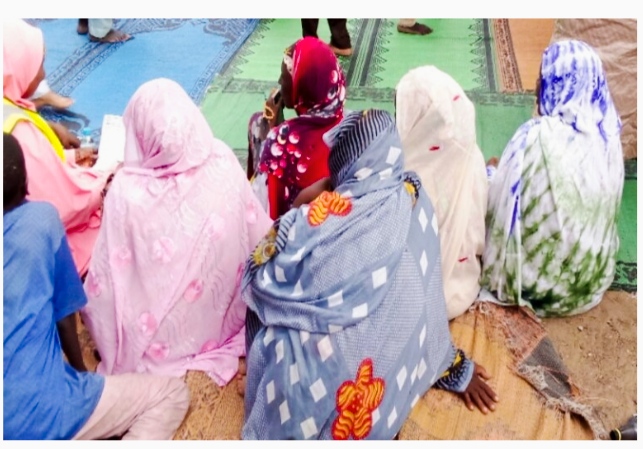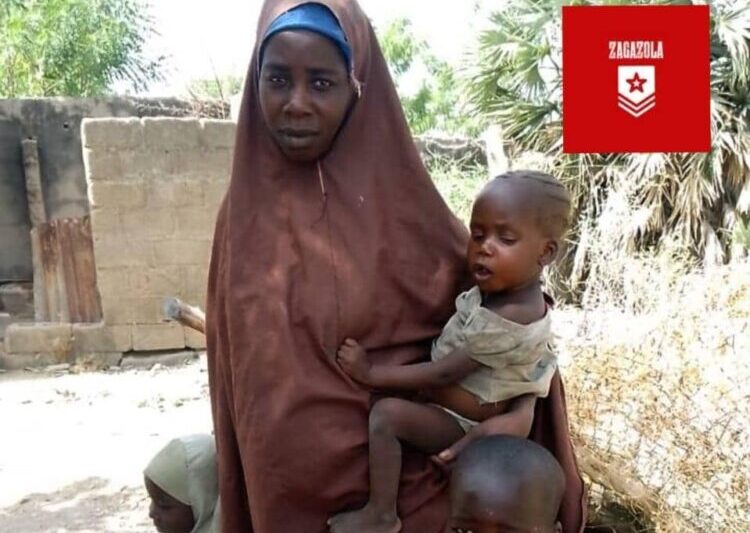Women across Nigeria are angry, disappointed and concerned that parliament has refused to pass the gender equality and equal opportunity bills.
The bills, which have been pending before the National Assembly, sought to create special seats for women in the national and state assemblies, giving women more power and a say in governance, as well as greater representation.
A coalition of more than 200 women’s groups condemned the legislature for voting against the gender bills.
In a statement, they said the National Assembly did not want progress for society – for mothers, aunties, sisters, wives and daughters.
They said the decision reinforced the discrimination and political bias against women as enshrined in the constitution.
RNI reporter Aisha Jamal spoke to women in Maiduguri to find out what they thought.
Maryam Shuai’bu said she was not happy about the result because women were supposed to be given the required space to give their opinions on issues pertaining society.
“Decision-making matters a lot to me. I find the denial of the bills most discouraging and I believe many issues would be solved if women had greater representation in governance. The national assembly’s denial is a denial of our rights as women.”
Bintu Muhammad Adam said she was dismayed by the decision.
“I was positive they would be passed into law. I am angry and disappointed that the mostly male parliament denied women these rights,” she said.
“Had these bills been successfully passed, there would be more women involved in public affairs and I’m sure they would have yielded positive results. Men are more interested in greater participation in matters of the state.”
Fati Jidda, from the Gender Equality Peace and Development Centre in Maiduguri, said she believed women were required in all aspects of social and political life.
“Women, by nature, have the closest interaction with both genders, treating matters with more empathy and understanding. We are capable – and always have been – of contributing a positive influence on matters of state importance. If given the chance, women’s participation would prove valuable and advance the nation’s belief in legislators’ decisions. But, unfortunately, women have once again been sidelined.”
She said the denial had been an act of self-interest on the part of the men in power.
“The percentage of women’s participation in governance is low in Nigeria because it remains one of the world’s nations that believe women are the weaker gender, not capable of taking important governance decisions.
“What message does this give to the younger generation of ambitious young women? It says: ‘There is no point in going into politics because you will just end up failing.’
“Women deserve a chance; we shouldn’t be left behind. I want the legislators to overlook the bills and empower us to contribute in our homes and in the country at large because we need it and the next generation of girls needs us to show them the way.”
“Plan International, as a gender responsive and equal rights organisation, stands in solidary with the Nigerian women,” said Charles Usie, the country’s director.
“We call on the National Assembly to reconsider their stance and pass the gender equality bills to strengthen our democracy and ensure the full participation of women and equitable representation in governance.”
He said parliament’s action had the potential to undermine the importance and relevance of women’s contribution to governance, including the key role women played to galvanise support and victory to political parties in elections.
Usie said it was a pity that Nigerian llegislators had chosen the month of March – International Women’s Day is on March 8 – when women will be celebrated across the world in recognition of their achievements, leadership, courage, strength and resilience, to throw out legislative bills that were meant to raise the hope of equality for all women.
He said it was troubling that the legislators had not provided any reason for the rejection of the bills, despite their significance for a large part of the populace who had been denied the opportunities to give as much as they could to the country.
AISHA JAMAL








